Money Talk: How To Keep Track Of Your Finances
Money is a topic that affects all of us in some way and it’s probably one of the most delicate ones to talk about. In Austria, talking about your own salary, asking for someone’s income or even just asking about someone’s rent is a no-go. People frown upon those questions. I honestly don’t understand that behavior, because how are we supposed to learn how to deal with our finances if we can’t even talk about them? I think it can be very helpful to find out how others approach the topic of spendings, budgets and savings.
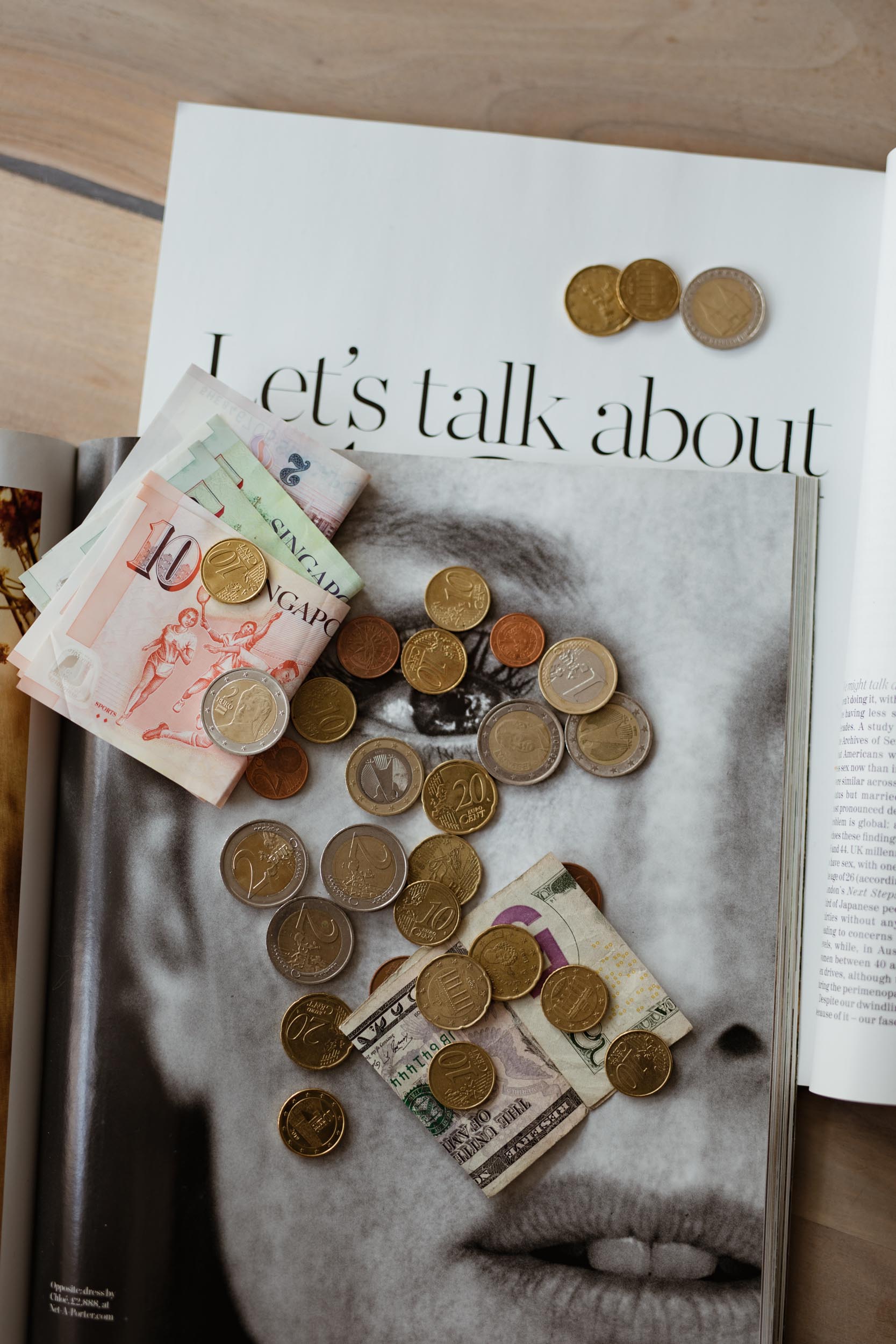

All I know about money, I learned from my parents. If it wasn’t for them, I would not have even known how to set up a bank account. Money education is such an important topic, and I’m happy to share my experiences with money, finances and everything that has to do with it with everyone who’s interested. Because quite frankly, the biggest learning during the past four years of self-employment for me personally has to do with money.
Up until the day I was self-employed, I was used to having a certain amount of money on my bank account each month. Once I quit my job and did not have a monthly wage anymore, access to money, savings, insurance and expenses has turned completely upside down for me. When you know you have monthly spendings, but you don’t actually know with any certainty how much money you’ll earn, you suddenly have to become a lot more conscious about your finances.
When you’re self-employed, some kind of uncertainty is part of your daily life. Since the Corona Virus washed over us, uncertainty about finances might have become an unpleasing side effect for many of us who never had to deal with that topic before. In times like these, it’s even more crucial to have a good overview of your finances to keep calm. It’s a great occasion to analyze your own money behavior and organize your finances in a better way!
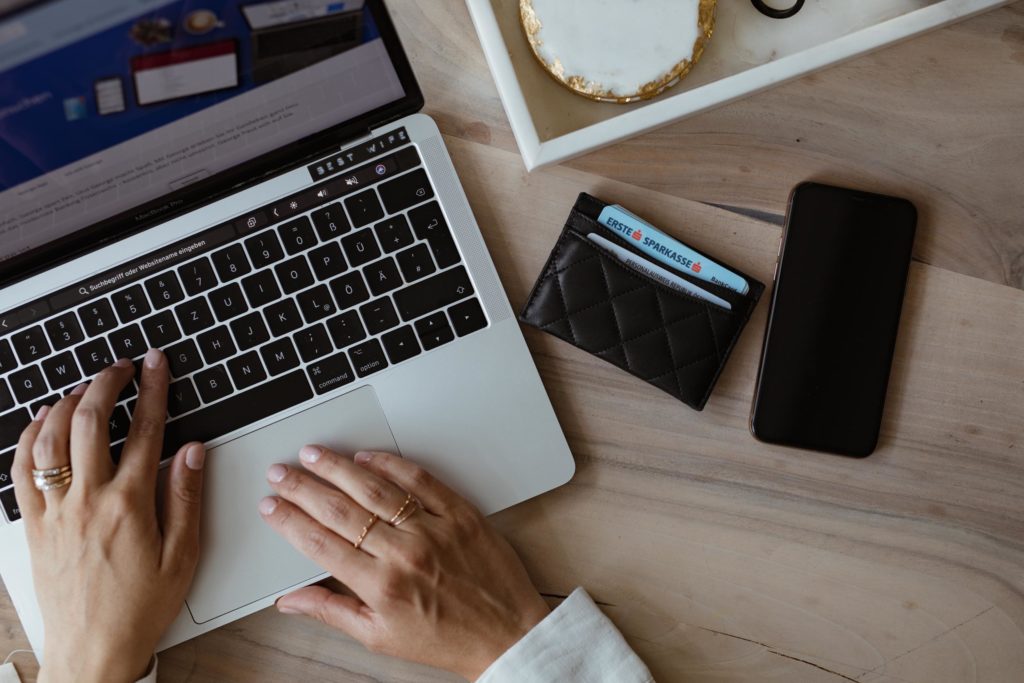
Today, I’m sharing how I keep track of my expenses and income, and what tips have helped me to learn how to deal with money:
My dad has always told me: If you want to win with money, you have to stop being afraid of it. Once you realize that money is nothing else but your friend that enables you to do certain things, your relationship with it might start to change. The way you become friends with money is to make a budget and then stick to it. First of all, you have to track your expenses – and you have to be brutally honest with yourself. Otherwise you’re doomed to fail. But don’t be intimidated – if you want to move forward in your money journey (with confidence!), there are a few simple steps you have to follow.
Steps To Keep Track Of Your Expenses
Step 1: Create a budget
You won’t be able to track expenses without one. A budget is your monthly money plan – your expected income and expenses put in categories for the whole month. A budget doesn’t control you; you control it. It’s a guide you set up for yourself to make sure your money is doing what you’re telling it to do.
There are three basic steps to setting up a budget:
- Write down your monthly income.
- Write out your monthly expenses.
- Be honest with yourself: Start with food, rent, insurances, transportation and specific medication you might need on a monthly basis, costs for your pet – so basically anything you (and the people and pets you’re responsible for) absolutely need to survive.
- Once those are covered, list out all other expenses that come on top, like entertainment, eating out, gym memberships, television streaming services, your phone bill, monthly beauty appointments, savings, etc. – these two parts of expenses added up are your monthly fixed costs.
- In the next step, make sure your income minus your expenses equals zero.
- If the math doesn’t work out, you need to adjust your categories and lower your expenses (this will probably mostly affect the second category of expenses) until you get that zero-based budget.
If you’re self-employed like me and don’t have a regular monthly income, it’s even more crucial to know your monthly fixed costs so you know how much money you need to earn (or have in savings) to be able to survive during times when you don’t have as many paid jobs as expected.
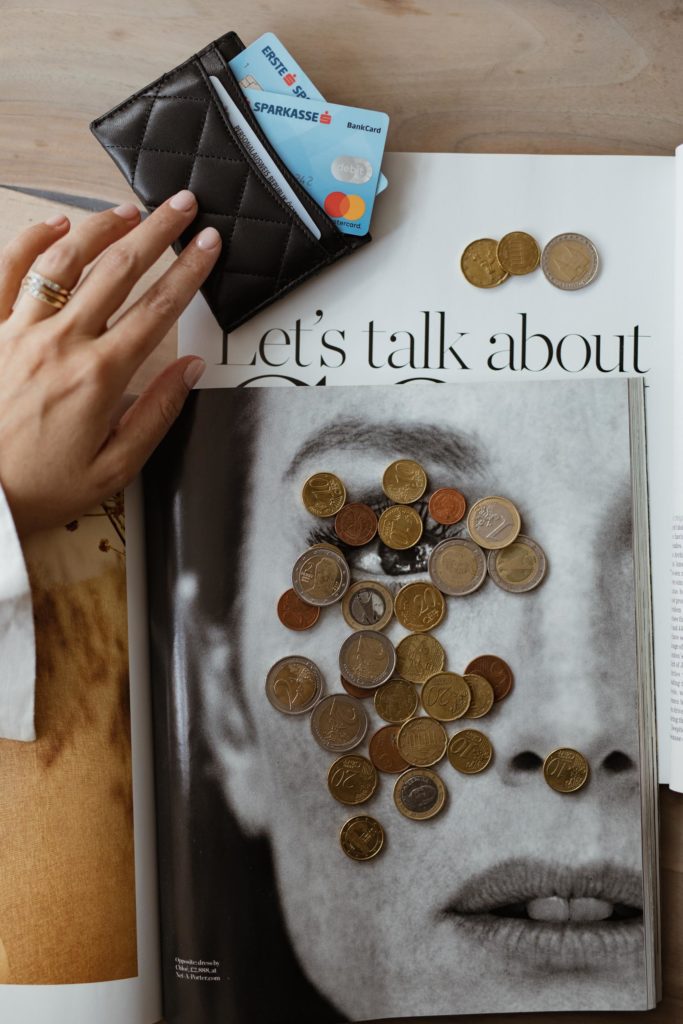
Step 2: Record your expenses
Unless you want to keep living in a fantasy land where wallets never go empty and bank accounts are always full, you have to record your expenses as precisely as possible. It won’t be enough to track your expenses at the end of the month, because if you don’t keep up with what you’re spending, you won’t know how much of your budget is left.
How you record your expenses is completely up to you. Some people prefer to write everything down in a little notebook, some people insert their expenses as notes in their smartphones. Since I hardly ever carry cash with me, I mostly pay by debit card. This way, all my expenses are automatically tracked on my bank account and I can see everything at a glance without any additional effort. Paying by debit card got even more convenient since contactless payments were introduced – by now, my debit card allows me to pay for things up to 50€ without having to insert any code.
Keeping track of your expenses is key for you to know, or to communicate to your spouse, how much money is left to use in all those categories you set up through step one. And that brings me to the next step.

Step 3: Watch those amounts
I know tracking expenses and keeping a budget can be tedious. But once you learn your budget is actually here to help you fulfill your long-term dreams and to make you sleep better at night, rather than being your enemy, you’ll soon enjoy keeping track of your finances. Tracking your expenses can help make sure you don’t overspend in any area.
The easiest way to blow your budget is if your budget is unrealistic, if you don’t track your expenses and if you don’t watch your spendings. Which brings me to the next point:
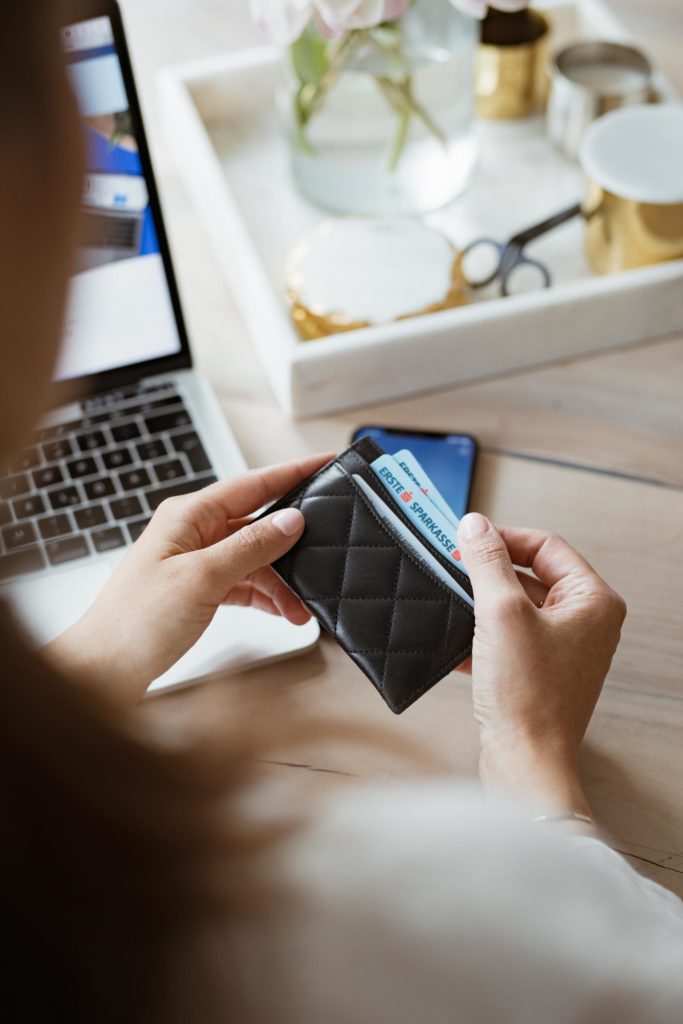
Step 4: Look for a bank that makes tracking your finances as easy as possible
When Patrick and I moved in together started sharing a household, we soon decided we wanted to have a shared bank account for all our shared spendings such as rent, insurance for the apartment, grocery shopping and also leisure time spendings such as eating out, coffee dates or going to the movies etc.
We were looking for a bank that offers easy Internet banking and would enable us to keep track of our expenses in the most comfortable way. After comparing different offers from banks, we choose to open up a bank account at Erste Bank und Sparkasse, because their services ticked all our boxes. Especially their Internet banking called George is like your personal financial online manager and it is very helpful to follow all the steps I mentioned before with it.
You’re able to categorize your expenses and visualize them by pie chart, as well as set monthly budgets for various expenses in your account (e.g. entertainment, clothing, beauty appointments, eating out etc.) and if your monthly virtual budget for a certain category is at a limit, you’ll get a notification. This way, you won’t blow your budget anymore and you’ll soon realize how much fun it can be to categorize and analyze your expenses. There’s also no excuse not to make use of it, because George is easily accessible from everywhere via an App.
The George App is super helpful to keep track of your finances – especially if you feel like you’re an “unorganized” person. Since we’ve had that shared bank account, we hardly ever had to discuss any spendings and the annoying questions of who paid what and who owes whom money has never been a topic in our relationship.
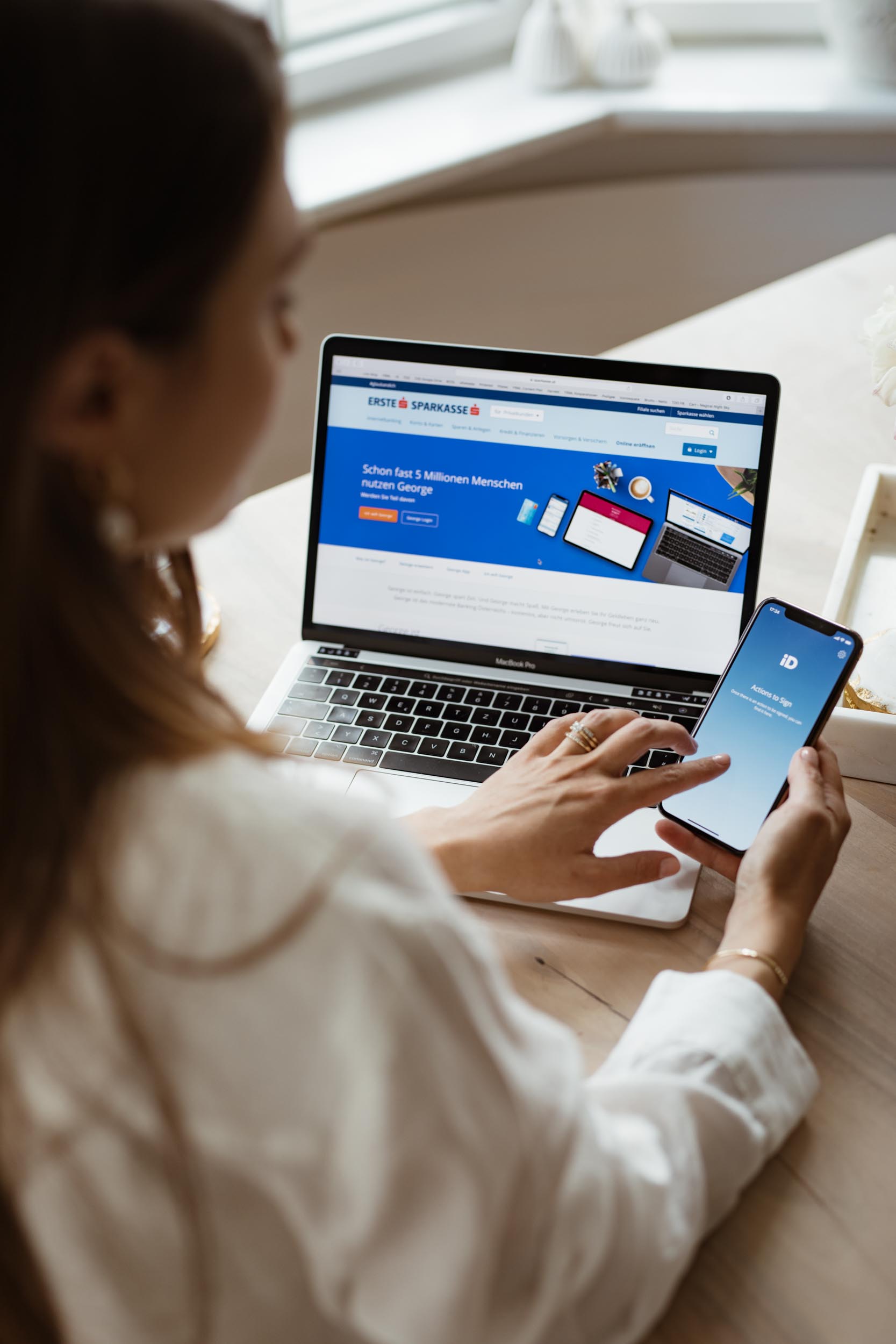
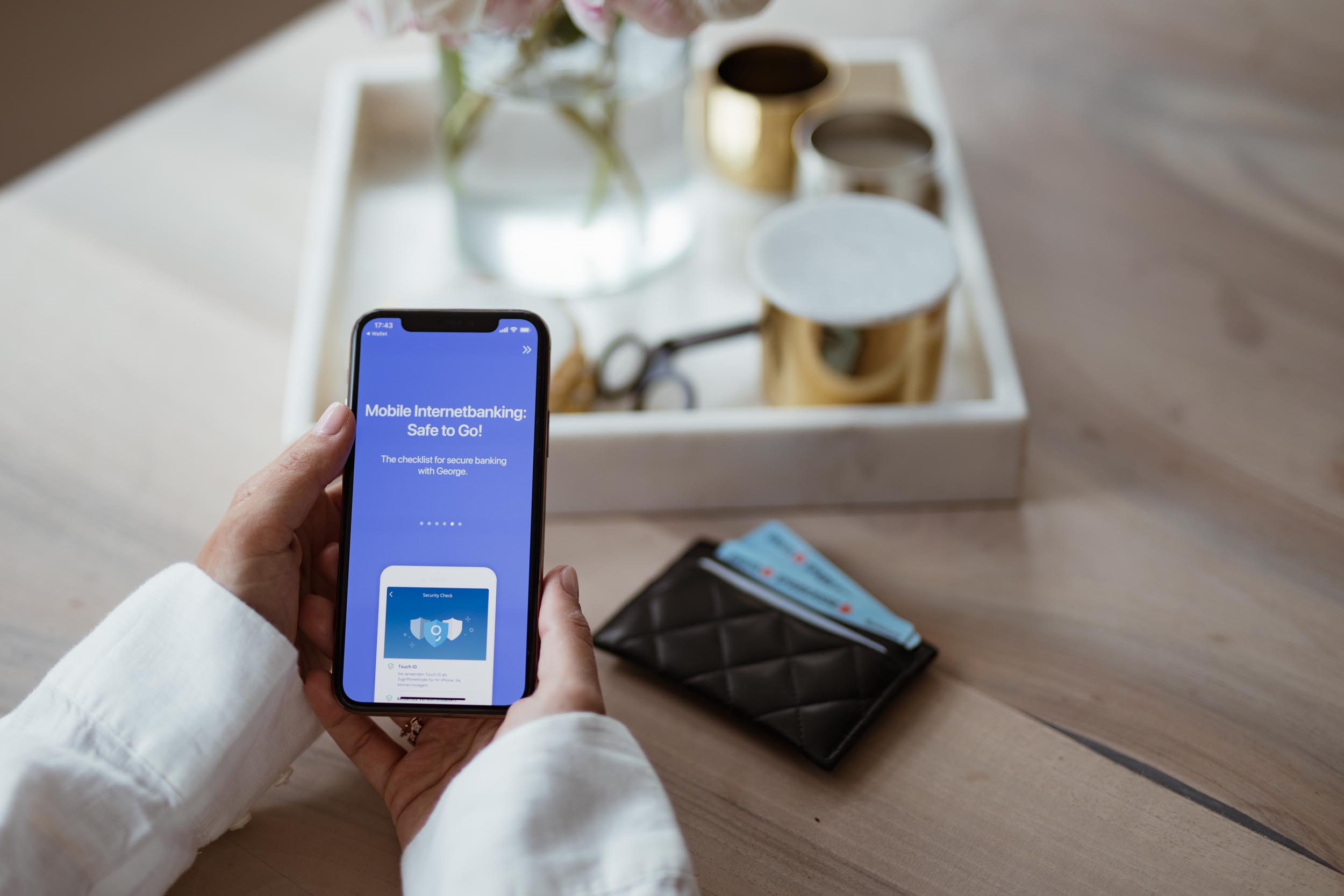
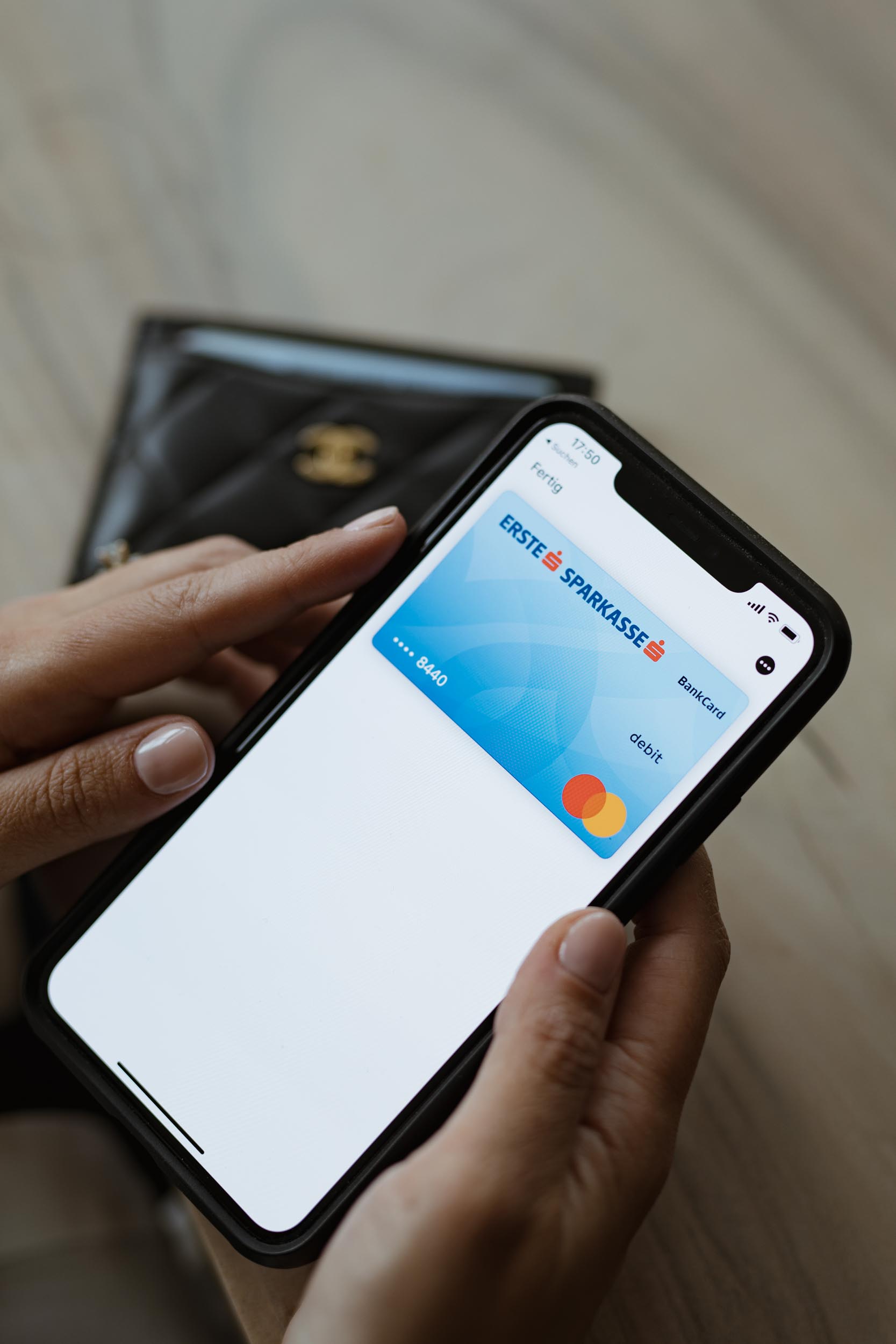
For all situations in life.
When I had to open up a bank account for my own company, I didn’t think twice and also chose Erste Bank und Sparkasse as a trusted partner by my side for my finances.
First of all, George is super intuitive to use, offers all relevant plug-ins I need, you can save your clients IBANS, create reoccurring transactions, and it offers you a very user friendly overview of all the movements on your bank account. For SMEs like me, it’s super important to be able to see all my finances at a glance and it makes my daily professional life a lot easier.
Secondly, Erste Bank und Sparkasse is also a strong partner in difficult times like we’re facing right now. They have set up a Corona-helpline that is accessible for all business customers, they offer interest and installment deferrals, help you with bridge financing and give you information on how to access state aid and subsidies. No matter if in times of COVID-19 or before, the fact I can access my bank account from everywhere in the world, and that I know there is the possibility of phone consultation and quick help via the app are just some of the many reasons why I would chose Erste Bank und Sparkasse as my partner for finances all over again.

How do you take care of your finances? Do you set up monthly budgets? And what helps you to track your spendings? Share your experiences and tips in the comments, if you like!
Hallo Nina, jetzt in Zeiten von Corona einen Beitrag zum Thema “Geld” zu schreiben, finde ich absolut richtig. Wenn die Kurzarbeit und Arbeitslosigkeit steigen, werden wir uns alle mit diesem Thema beschäftigen müssen und (wohl oder übel) den Gürtel enger schnallen müssen. Ansonsten hilft nur, wie du schon geschrieben hast: monatliche Budgets festlegen und die Einnahmen und Ausgaben im Auge behalten.